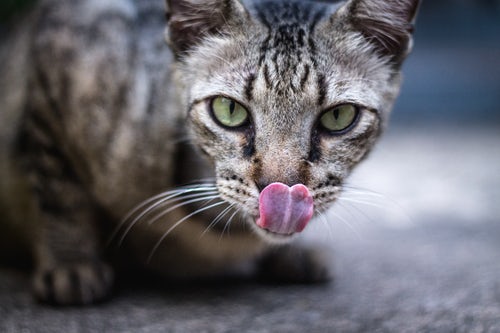Have you tried some variation of the keto diet only to find it didn’t transform your life? You still had to turn up to work on a Monday morning, you still had weekly bills to pay, you still had moments of self-doubt and bloating and you still had to clean your teeth… but seriously sometimes it’s confusing exactly what these diets are supposed to give you isn’t it?… and even if you’re just curious as to what all the keto fuss is about then read on because by the end of this post you will be clear on what the keto diet will and will not do for you.
What is the Keto Diet?

The ketogenic (aka keto) diet is a very low carbohydrate, moderate protein and high fat diet. If you want a little more depth on the macronutrients see my earlier post What Is Healthy Eating Anyway? because in this post we’re not going to go into all the background we’re getting straight to the point.
In general, if you’re following the keto diet you’re getting 80% of your energy needs from fat, 15% from protein, and 5% from carbohydrates1,2. As a comparison for those who remember a few years ago there was a pretty popular diet called the Atkins diet which was around 60% energy from fat, 30% from protein, and 10% from carbohydrate. Therefore, the keto can be thought of as somewhat of an even more restrictive version of the Atkins diet.
How Does the Keto Diet Compare to General Healthy Eating Guidelines?

The Australian Dietary Guidelines (ADGs) are based off a recommend macronutrient distribution range (AMDR) which is thought to be the “ideal” eating pattern (given the analysis of the best existing nutrition literature currently available) for the prevention of chronic disease development (chronic diseases include type II diabetes, heart disease and cancer). The AMDR recommends between 20-35% of daily energy intake comes from fat, 15-25% from protein and 45-65% from carbohydrate. It’s not hard to see that there’s some big differences when compared to the macro distribution of the keto diet in particular the almost absence of carbohydrate and the much higher intake of fat on the keto diet.
What Does the Keto Diet Do?

The keto diet induces biochemical changes associated with starvation. It puts your body into what is known as ketosis (something I learnt in my training as a biomedical scientist to very much avoid in patients…).
What Is Ketosis?

In a nutshell when you’re not eating enough carbohydrates to meet your body’s energy needs your body is forced to switch from primarily using glucose (aka sugar- from the breakdown of carbohydrate containing foods) to using primarily ketone bodies.
Ketone bodies are made from both the fats you eat and from your body’s fat stores and the reason your body can’t use fats directly as a fuel is because fats cannot cross the blood brain barrier and as supplying your brain with adequate energy is evidently important your liver converts fats into ketone and then releases them to circulate through your bloodstream where they can be picked up and used by your brain and other organs (in the same way glucose is under normal eating conditions).
The higher than usual presence of ketone bodies in your bloodstream is called ketosis and while it is undoubtedly a great thing that you can switch fuel sources from glucose to ketone bodies (otherwise you’d starve and die fairly quickly if for some reason you couldn’t get access to carbohydrate containing foods – evidently a useful evolutionary adaptation) it by no means is ideal for your body to be put under the stress of starvation be this willingly or otherwise.
Things You May Have Heard About the Keto Diet

The keto diet creates fast weight loss, prevents Alzheimer’s, Parkinson’s disease and cancer as well as improves mood, memory, energy and longevity.
Are Any of These Claims True?

Actually, yes. Well a small part anyway, prevention of Alzheimer’s, Parkinson’s, cancer, improved mood, memory, energy and longevity not so much and there is insubstantial evidence to support any of these claims however, the fast weight loss that’s spot on. However, before you get too excited it is important to understand why the keto diet does create fast weight loss because it’s not magic and it’s not a miracle it’s science and it’s certainly not health promoting science.
How Does the Keto Diet Create Rapid Weight Loss?

As we’ve said the foundation of the keto diet relies on a switch from using glucose (provided by dietary carbohydrates) to using ketone bodies (provided by dietary and body fat stores) as your primary energy source. The weight loss part comes in as your body is making this switch because before your body makes this switch it goes through a transition phase in which it uses up your stored glucose. Your body has a limited storage capacity for glucose as it is stored as long chains of glucose linked together to form glycogen. Glycogen is kept in your liver and muscles and released between meals to maintain your blood glucose levels (BGLs) allowing you to go a few hours between meals otherwise you’d have to eat non-stop to keep your BGLs at a level suitable for life. It doesn’t take your body long to burn through your stored glycogen (even an overnight fast can deplete stored glycogen) in any case it is completely used up within the first few days of a low carbohydrate diet and this is the reason why people following a keto diet may experience rapid weight loss initially.
How does loss of glycogen stores cause weight loss? Because glycogen is stored with water in a 1:3-4 ratio which means for every 1 gram of stored glycogen your body uses up you also lose 3-4 grams of water.
Between your liver and your muscles, you store about 600g of glycogen and doing some quick maths you can see that this means there is 1.8kg-2.4kg of water stored alongside this glycogen. Which represents a potential weight loss of up to 3kg all of which is water and glycogen…
What this means is that the hallmark of the keto diet (i.e rapid weight loss) is just you becoming dehydrated. Weird, I’ve never seen a health promotion message encouraging people to dehydrate themselves… in fact we’re told more often than anything else to drink copious amounts of water. I don’t know why anyone’s goal would be to lose a couple of kilos of water weight (ok, there’s a few caveats like if you have ascites but you know what I mean). Do you want to be dehydrated, grumpy and tired (all things which happen when we don’t eat enough carbs) or do you want to be a few kilograms heavier, hydrated, happy and energised?…
Things You Don’t Hear About the Keto Diet

The ketogenic diet was designed for one thing and one thing only and that is as treatment for drug resistant epilepsy (intractable epilepsy) in children3-6 in particular those with gastrostomy tubes7 and while it has been found to be an effective means of managing symptoms within this specific population group this has not been without adverse effects. Studies have shown an increase in cholesterol8, kidney stones, bone problems9 and liver problems10 bad breath, headaches and fatigue11,12 acidosis11, constipation13-15, heart problems, pancreatitis, damage to the brain, bruising as well as vitamin and mineral deficiencies16-21 (including magnesium, zinc, vitamin D, C, B vitamins and calcium all of which come with their own swathe of unique and certainly meaningful problems…).
What Does This All Mean?

At the end of the day the keto diet was never intended to be a DIY diet. It was never designed in any way to improve health in the already healthy population or even to be used as a weight loss diet. The keto diet is a very rigorous and restrictive diet for use in a very narrow clinical context. That is for the management of intractable epilepsy in children (as well as in those who are unable to utilise energy from carbohydrate sources due to genetic disorders). The reality is the keto diet must be carefully prepared and requires medical supervision for initiation and ongoing neurological monitoring for anyone attempting it due to the high risk of micronutrient deficiencies and the side-effects discussed above.
Diets rich in a variety of foods including wholegrains, fruits and vegetables have long been associated with significantly lower risk of cardiovascular disease22 stroke22, cancer24, and other conditions. The fact that many of these foods are missing from low-carbohydrate diets25 indicates cause for concern and is a further reason why low carbohydrate diets should not be recommended for healthy individuals or for weight loss. Low-carbohydrate diets for the healthy population (including those who wish to lose weight) are far from healthy. Health is about consistency and consistency comes through creating the skills and becoming the person who happily and naturally uses these skills because this is the way a lifetime of health is maintained and the keto diet doesn’t fall even remotely under such a category. As a dietitian and more so as a human being working with others daily to create healthy lives my emphasis is always on sustainable and enjoyable eating because this is what creates health and not restriction and narrowing of choices.
Finally, Coming Back to the Question “Will Keto Work for Me?”

What Is Your Aim?
What is the outcome you want to experience? What is it you think the keto diet will give you? When you know this you can then find out if it will really give you those things you want and thus make an assessment as to whether or not it will “work for you” (disclosure- it won’t pay your bills, prevent you from ever experiencing self-doubt or bloating again and you most certainly will have to continue to clean your teeth).
But in all seriousness, these are the most important questions to ask yourself about any changes to your diet (or life) you make. Why are you doing it and will the diet achieve that for you?…
I hope this post went part way (or all the way) in helping you obtain the information you need to answer your questions about the keto diet and what it will and will not do for you. If you have specific questions or you’d like elaboration or clarification on anything in this post please pop your question below in the comments or contact me directly and I’ll be more than happy to delve into more personalised info with you.
With my whole heart I trust you found this information useful and inspiring

Become Great. Live Great.
Bonnie.
Reference
- Freeman JM, Kelly MT, Freeman JB. The ketogenic diet: a treatment for epilepsy.3rd end. Demos, New York; 2000.
- Kossoff EH. More fat and fewer seizures: dietary therapies for epilepsy. The Lancet Neurology. 2004. 07;3(7):415-20.
- Freeman JM, Kelly, MT and Freeman JB. 1994. The epilepsy diet treatment. New York: Demos Medical Publishing.
- Kinsman, S.L., Vining, E.P.G., Quaskey, S.A., Mellits, D., & Freeman, J.M. Efficacy of the ketogenic diet for intractable seizure disorders: Review of 58 cases. Epilepsia. 1992. 33;1132:1136.
- Nordli DR and DeVivo DC. The ketogenic diet revisited: Back to the future. Epilepsia. 1997. 38;743-749.
- Vining EPG, Freeman JM, Balaban-Gil K, Camfield CS, Camfield PR, Holmes GL, Shinnar S, Shuman R, Trevathan E, Wheless JW. The Ketogenic Diet Multi-Center Study Group. A multicenter study of the efficacy of the ketogenic diet. Archives of Neurology. 1998;55:1433-1437.
- La Vega-Talbott M, Solomon GE, Mast J, Green NS, Hosain SA. Ketogenic diet in pediatric epilepsy patients with gastrostomy feeding (abstract). Ann Neurol 2001; 50 (suppl 1): S102.
- Kwiterovich PO Jr, Vining EP, Pyzik P, Skolasky R Jr, Freeman JM. Effect of a high-fat ketogenic diet on plasma levels of lipids, lipoproteins, and apolipoproteins in children. JAMA 2003; 290: 912-20
- Metgas CC, Barth CA. Metabolic consequences of a high dietary-protein intake in adulthood: assessment of the available evidence. J Nutr 2000; 130: 886-89.
- Freeman J, Veggiotti P, Lanzi G, Tagliabue A, Perucca E. The ketogenic diet: from molecular mechanisms to clinical effects. Epilepsy Res. 2006;68:145–180.
- Chen T, Smith W, Rosenstock JL, Klaus-Dieter Lessnau. A life-threatening complication of Atkins diet. The Lancet. 2006;367(9514):958.
- Freedman MR, King J, Kennedy E. Popular diets: a scientific review. Obes Res 2001; 9 (suppl 1): 15-40.
- Furth SL, Casey JC, Pyzik PL, et al. Risk factors for urolithiasis in children on the ketogenic diet. Pediatr Nephrol 2000; 15: 125-28.
- Kwiterovich PO Jr, Vining EP, Pyzik P, Skolasky R Jr, Freeman JM. Effect of a high-fat ketogenic diet on plasma levels of lipids, lipoproteins, and apolipoproteins in children. JAMA 2003; 290: 912-20.
- Vining EP, Pyzik P, McGrogan J, et al. Growth of children on the ketogenic diet. Dev Med Child Neurol 2002; 44: 796-802.
- Ballaban-Gil K, Callahan C, O’Dell C, Pappo M, Moshe S, Shinnar S. Complications of the ketogenic diet. Epilepsia 1998; 39: 744-48.
- Berry-Kravis E, Booth G, Taylor A, Valentino LA. Bruising and the ketogenic diet: Evidence for dietinduced changes in platelet function. Ann Neurol 2001; 49: 98-103.
- Stewart WA, Gordon K, Camfield P. Acute pancreatitis causing death in a child on the ketogenic diet. J Child Neurol 2001; 16: 682.
- Erickson JC, Jabbari B, Difazio MP. Basal ganglia injury as a complication of the ketogenic diet. Mov Disord 2003; 18: 448-51.
- Hahn TJ, Halstead LR, DeVivo DC. Disordered mineral metabolism produced by ketogenic diet therapy. Calcif Tissue Int 1979; 28: 17-22.
- Best TH, Franz DN, Gilbert DL, Nelson DP, Epstein MR. Cardiac complications in pediatric patients on the ketogenic diet. Neurology 2000; 54: 2328-30.
- Steffen LM, Jacobs DR, Stevens J, Shahar E, Carithers T, Folsom AR. Associations of whole grain, refined grain, and fruit and vegetable consumption with all-cause mortality, incident coronary heart disease and ischemic stroke: the ARIC Study. Am J Clin Nutr 2003; 78: 383-90.
- Ness AR, Powles JW. Fruit and vegetables, and cardiovascular disease: a review. Int J Epidemiol 1997; 26: 1-13
- Malin AS, Qi D, Shu XO, et al. Intake of fruits, vegetables and selected micronutrients in relation to the risk of breast cancer. Int J Cancer 2003; 105: 413-18.
- Astrup A, Larsen TM, Harper A. Atkins and other low-carbohydrate diets: hoax or an effective tool for weight loss? Lancet 2004; 364: 897-99.




4 thoughts on “Will Keto Work for Me?”
Well I really liked reading it. This subject provided by you is very effective for proper planning.
Thank you, I’m glad you found the post useful 🙂
Hi there! Someone in my Myspace group shared this website with us so I came to give it a look. I’m definitely enjoying the information. I’m bookmarking and will be tweeting this to my followers! Superb blog and fantastic style and design.
Thank you for your feedback.